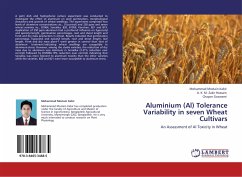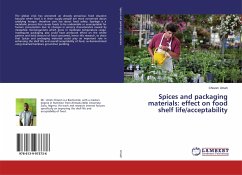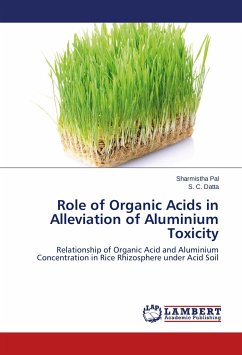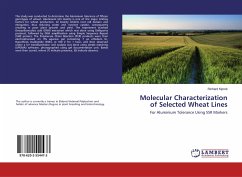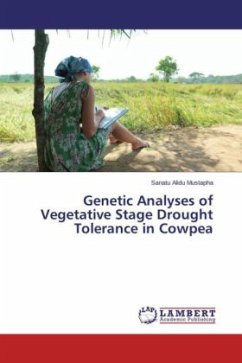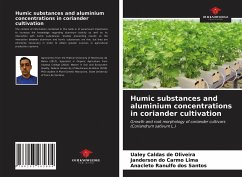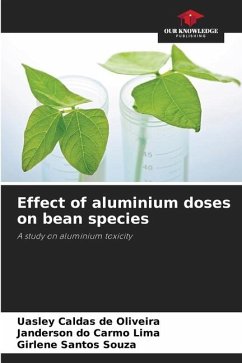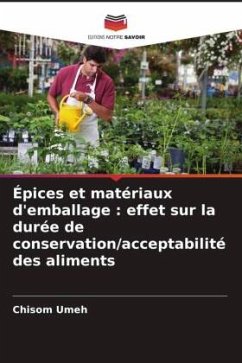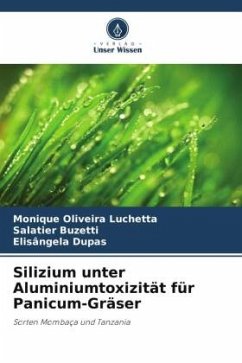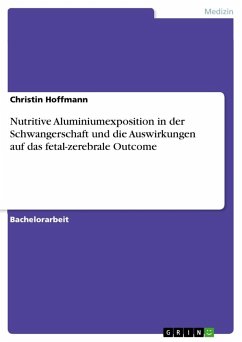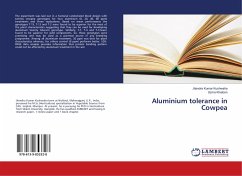
Aluminium tolerance in Cowpea
Versandkostenfrei!
Versandfertig in 6-10 Tagen
33,99 €
inkl. MwSt.

PAYBACK Punkte
17 °P sammeln!
The experiment was laid out in a Factorial randomized block design with twenty cowpea genotypes for four aluminium (0, 20, 40, 60 ppm) treatments and three replications. Based on mean performance the genotypes T-15, T-13 and T-2 were found to be superior for the most of the plant characteristics suggesting that they can be used for developing aluminium toxicity tolerant genotype. Similarly, T-7, T-4 and T-12were found to be superior for yield components. So, these genotypes were promising and may be used as a parental source in any breeding programme. Among all aluminium treatment, 20 ppm was ...
The experiment was laid out in a Factorial randomized block design with twenty cowpea genotypes for four aluminium (0, 20, 40, 60 ppm) treatments and three replications. Based on mean performance the genotypes T-15, T-13 and T-2 were found to be superior for the most of the plant characteristics suggesting that they can be used for developing aluminium toxicity tolerant genotype. Similarly, T-7, T-4 and T-12were found to be superior for yield components. So, these genotypes were promising and may be used as a parental source in any breeding programme. Among all aluminium treatment, 20 ppm was best for plant characteristics whereas, for others control (0 ppm) performs better. SDS-PAGE data analysis provides information that protein banding pattern could not be affected by aluminium treatment in the soil.



